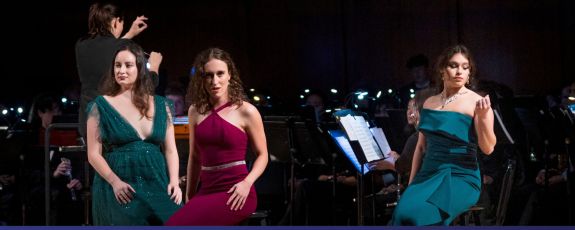
A Marriage of Opera and Wind Symphony
First-ever collaboration of two student music groups shows the importance of arts to the Duke student experience
The program “A Shining Night, O Night of Love,” which was held in Baldwin Auditorium Nov. 21, had something for everybody. For the musicians, it was encountering the rich operatic music of Mozart, Verdi, Bizet, Strauss and others. For the singers, it was a chance to perform an art form they love supported by a symphony. Because Duke Opera doesn’t have resources to hire symphonies, previously its concerts usually involved piano accompaniment.
For the Department of Music, the collaboration is an example of a growing department with a new generation interested and skilled in different forms of music. It’s a sign of the central role of music and the arts in general in the Duke student experience.
The Wind Symphony is composed of talented student musicians who for the most part aren’t music majors and likely hadn’t performed operatic music previously, said Verena Mösenbichler-Bryant, the symphony conductor and chair of the department.
“Collaborations between the music groups help bring different audiences together,” Mösenbichler-Bryant said. “All the groups have their own audience that don’t necessarily attend the other group's performances. We saw this as a chance to have our audiences try something new. A lot of our symphony students bring their friends, and I'm sure many of them have never experienced anything like opera.”
Like any new collaboration, there were challenges both for the singers and the wind musicians. Opera music had to be found that had been orchestrated specially for wind symphony. There were technical issues to solve to get the right sound balance between singers and musicians.
And opera brings its own niche challenges with wardrobes and sets that require a small army of workers. Since the program included music from a variety of operas, including “The Magic Flute,” “The Marriage of Figaro,” “Die Fledermaus,” “Carmen” and others, the solution was to use video projections on the screen above the musicians and singers to bridge between songs.
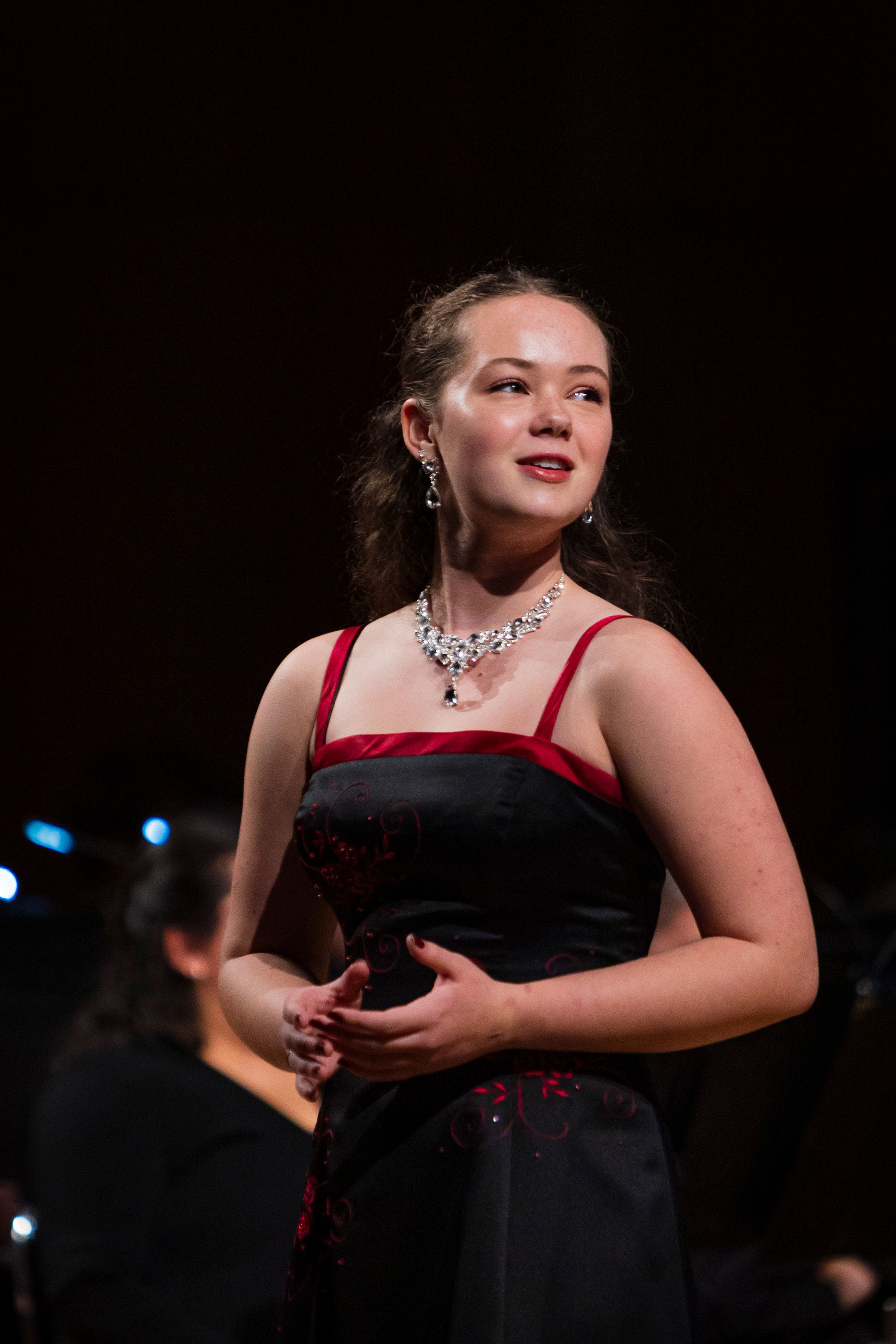
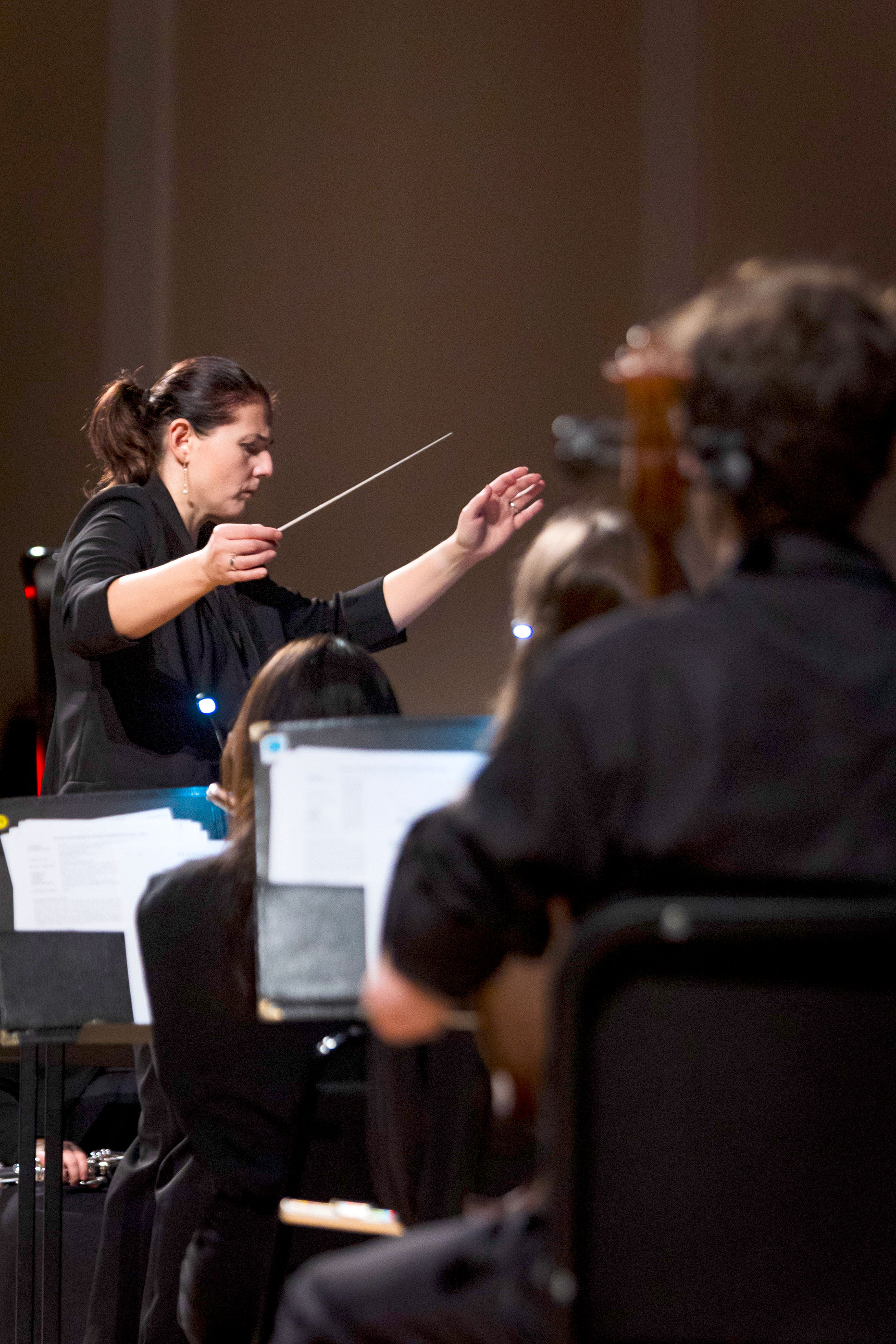
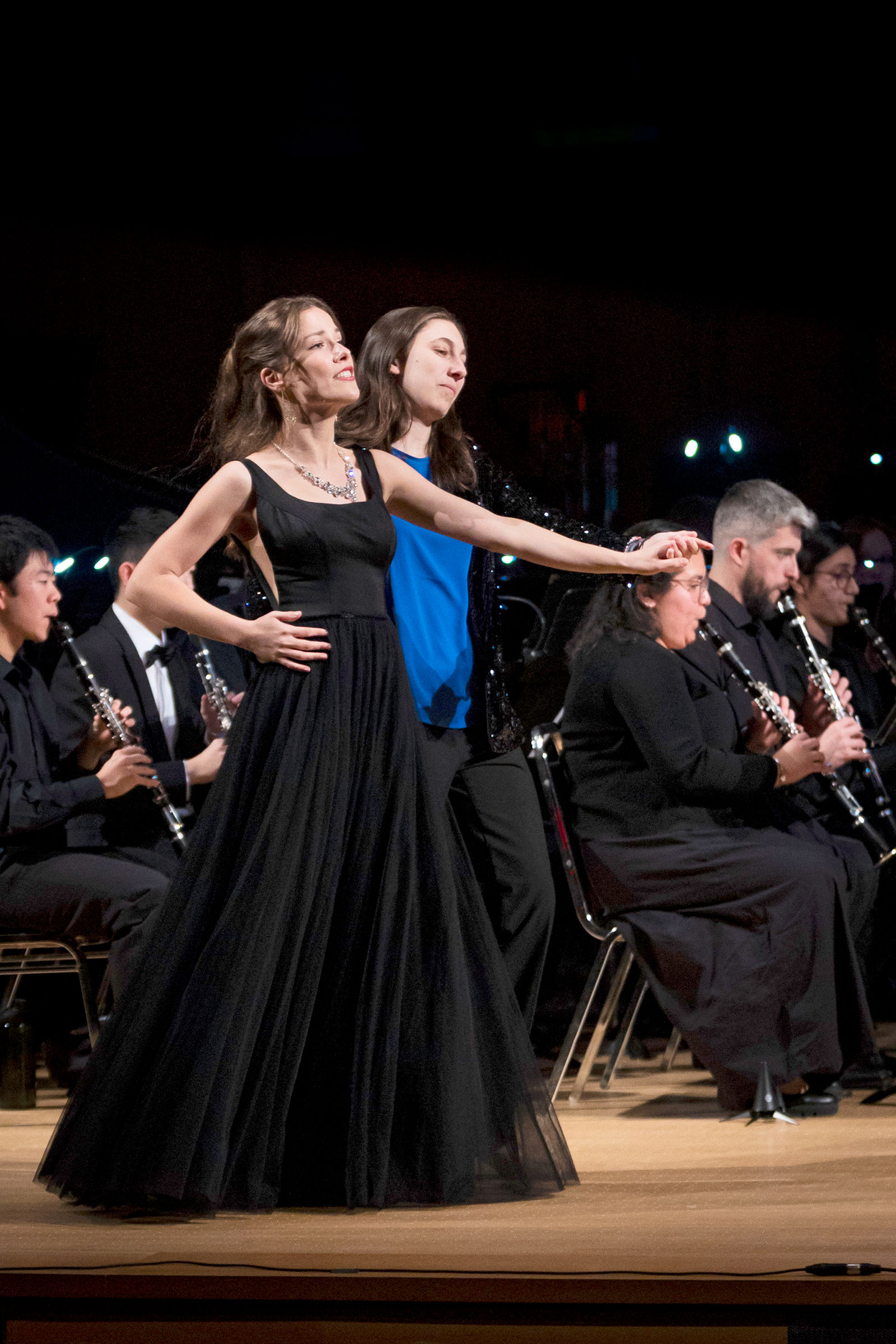
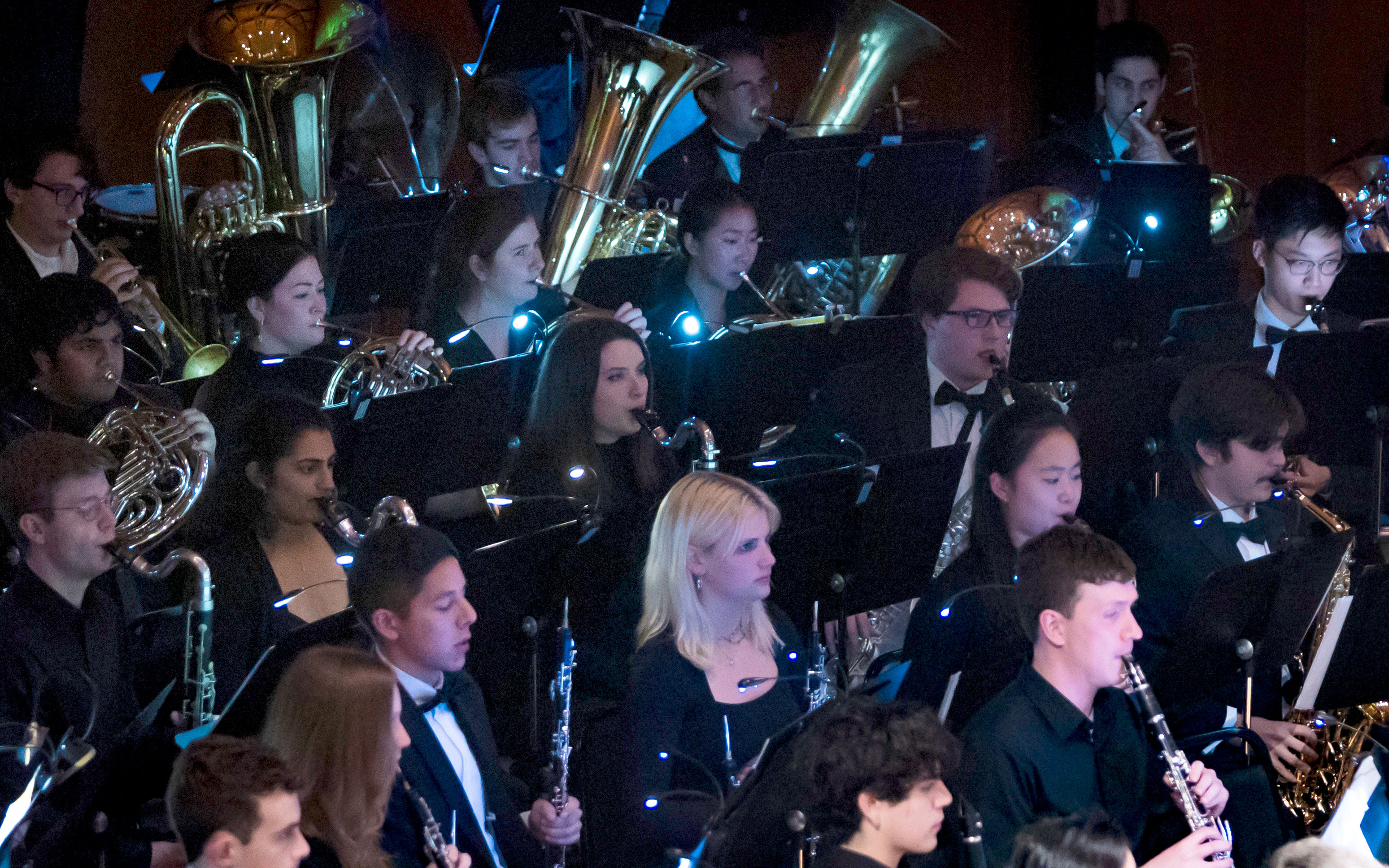
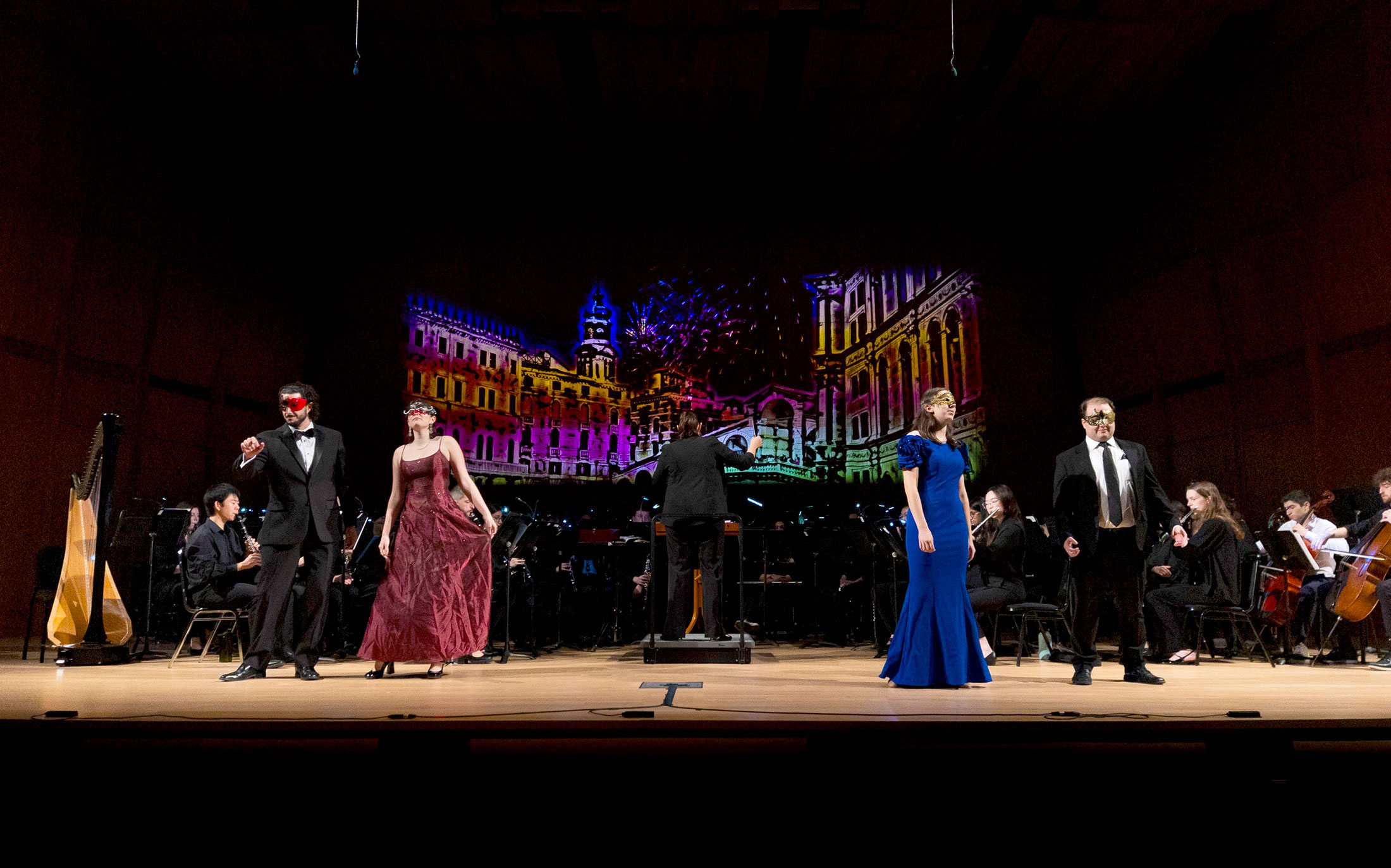
“Anything involving opera is going to be a huge undertaking, beyond the musicians and the singers,” Heid said with a laugh. He noted everyone from the technical staff that did the lighting, sound and video projection to the costume and prop teams. “They are so important to making it a special kind of project. Sometimes we forget about them, but they’re part of this whole process.”
A final part of the equation was the large Baldwin Auditorium audience, which included both Duke and local community members. Duke Opera always performs pieces in English, Heid said. “One of the things we’re doing is building the next generation audience for the art form,” Heid said. “We want to attract a new audience. I think community people who might be intimidated by opera can understand it in a different way when it’s in English. That’s an important part of our outreach mission.”
The semester began with the traditional Duke Symphony Orchestra pops concert, which fills the East Campus lawn with hundreds of community members. Throughout the year, the department’s nine vocal and instrumental groups perform a range of music from jazz to djembe in free concerts, entertaining thousands.
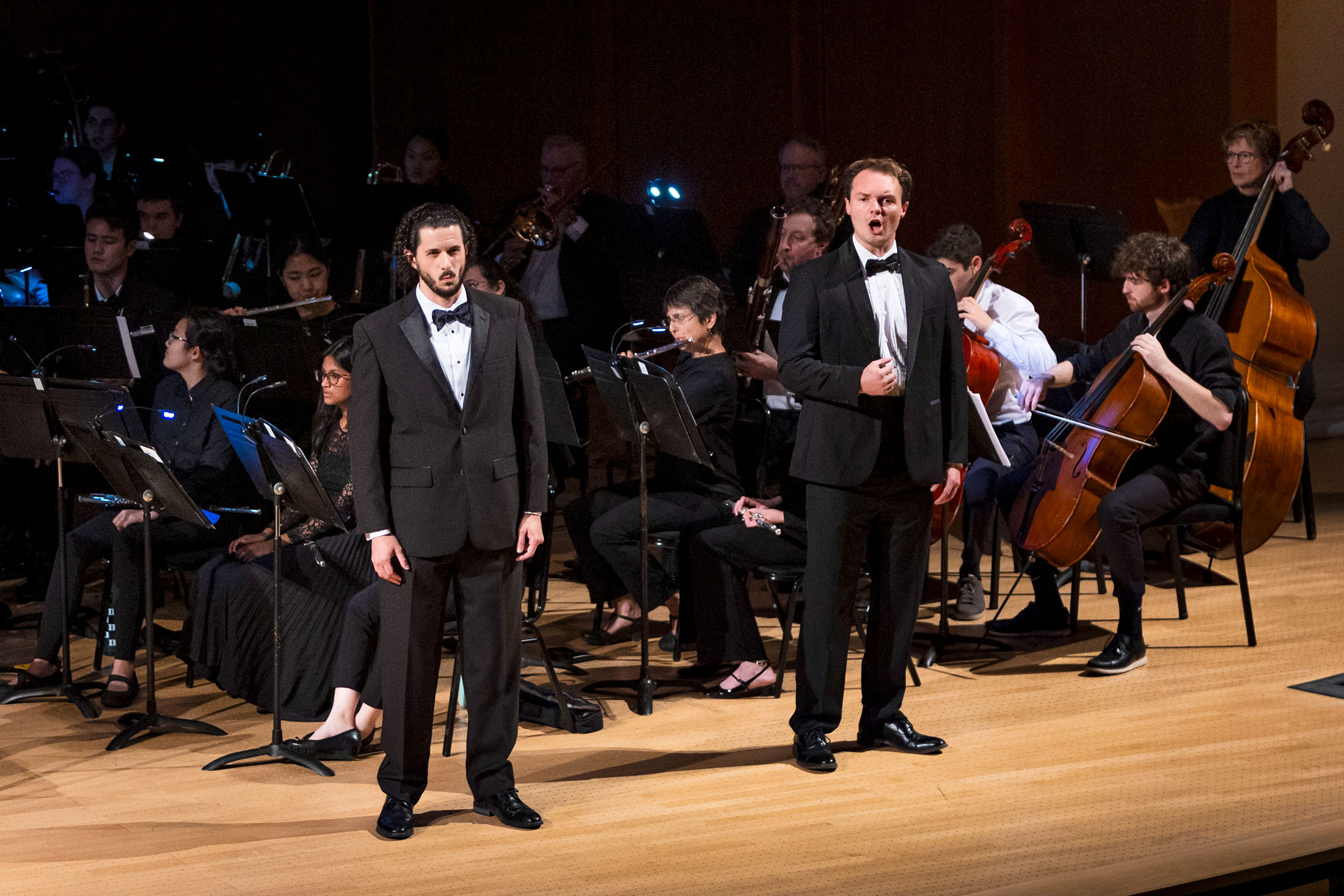
“One thing that is so valuable about institutions such as Duke is we can put on free concerts, although it costs the department a lot of resources,” said Mösenbichler-Bryant. “In a day where everything costs money, to have the opportunity to make an impact on the community, and people don’t have to worry about financial commitment, I think that is really beautiful.”